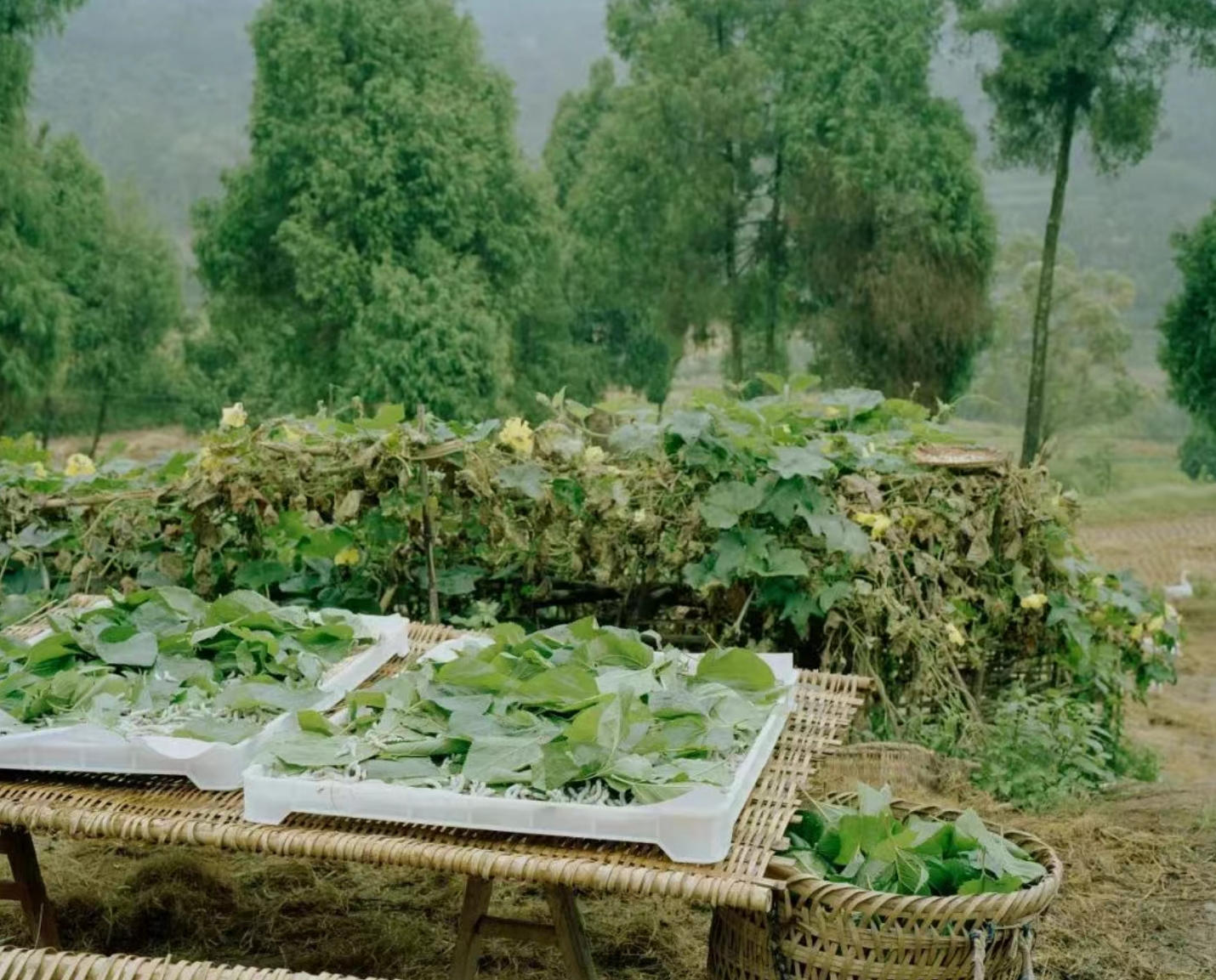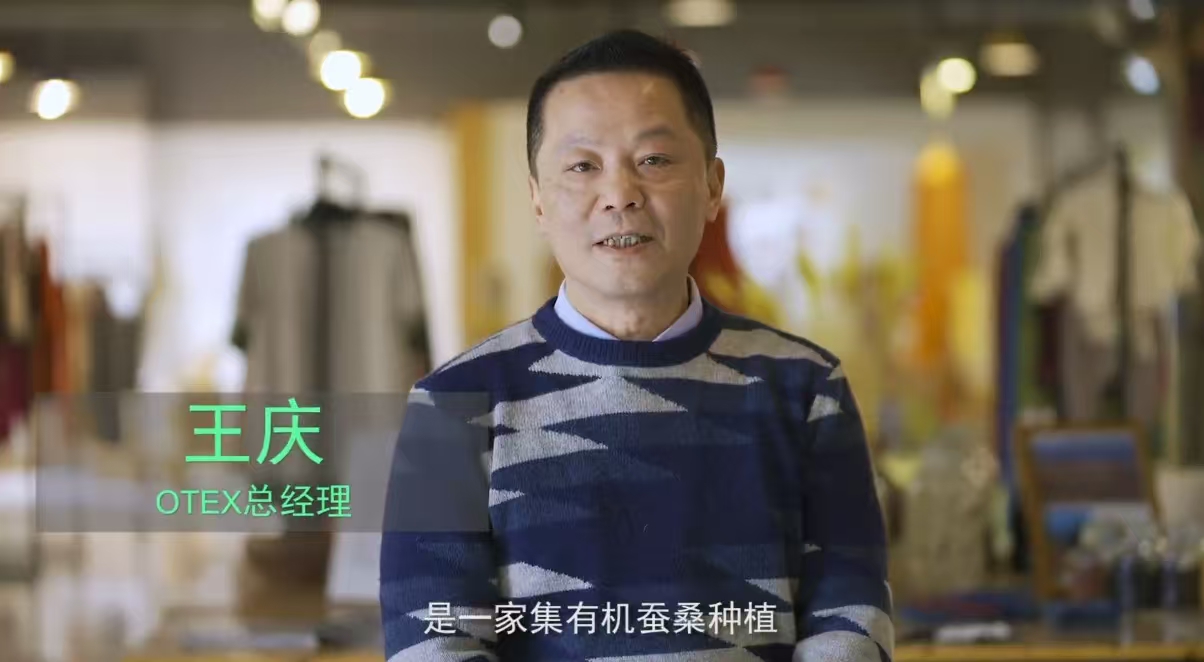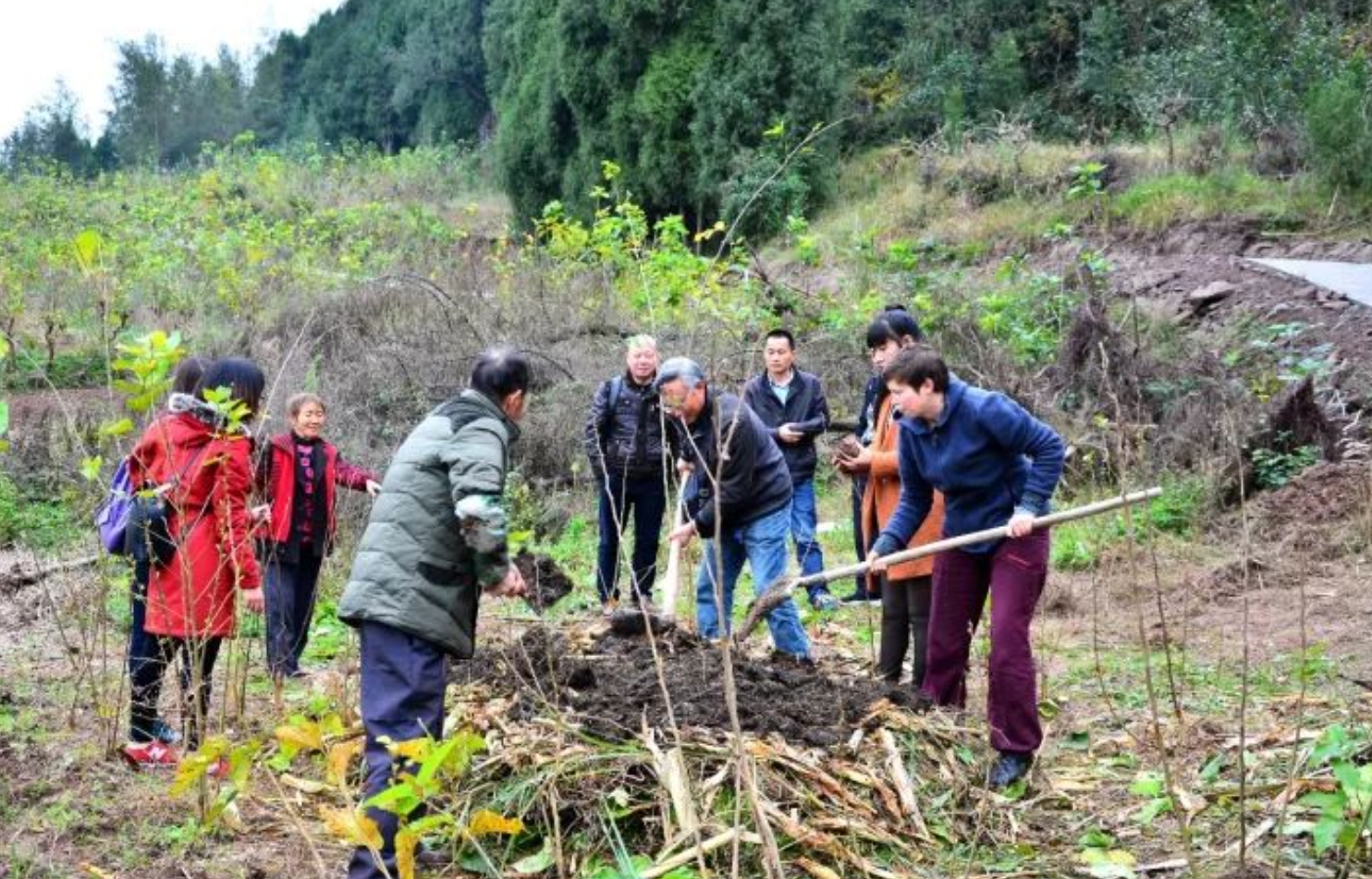Amid the growing trend of sustainable fashion, an increasing number of consumers are favoring organic silk, silk produced without the use of chemical pesticides during the cultivation of mulberry trees and the silkworm-rearing process.
After in-depth research, Luxe.CO discovered that the world’s first organic mulberry silkworm farm was established in Jiangyou, Mianyang, Sichuan, China, in the late 1990s:
Sichuan OTEX Textile Co., Ltd. (OTEX) began building a biodynamic mulberry silkworm farm in Dakang Town, Jiangyou, Mianyang in 1998. By 2003, the farm had obtained the organic cocoon certification from Switzerland’s IMO, the first such certification globally, three years earlier than the founding of the Global Organic Textile Standard (GOTS).

OTEX was jointly founded in 1996 by Germany’s renowned organic product distributor Waschbär GmbH and Tiansheng (Hong Kong) Investment Group Co., Ltd.
With over 20 years of experience in organic mulberry silk development and a fully organic production chain, OTEX was honored with the “Kering Generation Award” in 2021. To date, it remains the only silk-focused enterprise to receive this distinction.

In the competition’s promotional video, founder Wang Qing (pictured below) explained the original motivation behind OTEX’s commitment to sustainability:
“After our official establishment in 1996, our development went well, but we were also considering the company’s long-term strategy. So, we visited biodynamic farms in Germany. After learning about the model, we felt it was exactly what we needed. The theory could be localized in China and aligned well with traditional Chinese farming practices like composting and following the solar terms.”

Biodynamic agriculture, introduced by Austrian philosopher Rudolf Steiner in 1924, views the farm as a self-sufficient ecosystem that maintains a healthy state through natural means. Demeter is the certification system for biodynamic agriculture and represents the highest global standard for agricultural and food quality.

OTEX was among the earliest practitioners of biodynamic agriculture in China. According to its official website, “Since there was no organic silk in the world, we decided to give it a try.” With the support of Dr. Julius Obermaier, a senior consultant at Demeter, the farm was established in Dakang Town, Jiangyou, in 1998. Roads were built into the mountains, and the first mulberry tree was planted.

Above: In mid-to-late November 2017, OTEX collaborated with Inka Sachse, an agricultural expert from the EU’s Soil & More International, to provide on-site composting guidance to local farmers in Yilong County.
In 2014, OTEX expanded to 3,058 mu (roughly 505 acres) of mulberry farms in Yilong County, Nanchong, Sichuan. In 2017, the mulberry-silkworm base was certified under the EU Organic Conversion Standard, making Yilong the first certified organic silkworm-producing county in China. Local farmers reported, “While the price for regular raw silk is typically RMB 500,000 [approx. USD 69,000] per ton, organic raw silk can fetch up to RMB 700,000 [approx. USD 96,600] per ton.”
Beyond its silkworm farms, OTEX also operates a dyeing factory in Meishan, and its headquarters in Shuangliu, Chengdu includes a garment manufacturing base and a factory store. The company currently produces 50 tons of organic silk and 200,000 pieces of finished garments annually. Its export markets include Germany, Switzerland, Italy, and the United States, generating over USD 10 million in annual export revenue. In China, OTEX has been collaborating with klee klee, the eco-conscious fashion brand under ZUCZUG, since 2016.
In addition to silk, OTEX’s Yilong farm also grows organic vegetables such as potatoes, cucumbers, tomatoes, and green beans, further supporting the income of local farmers.
According to incomplete statistics:
- In Sichuan Province, aside from OTEX, other enterprises with organic mulberry silkworm farms include:
- Yin Hong Silk, part of South Silk Road Group, located in Ningnan
-
New Silk Road Company in Gaoxian, Yibin
-
Antai Company in Wusheng, Guang’an
-
Bubisi Company in Yilong, Nanchong
Outside Sichuan, organic silkworm farms are operated by:
-
-
Jialian Company in Hechi, Guangxi
-
New Qianfo Company in Qujing, Yunnan
-
-
Huajia Silk also has an organic silkworm base in Qujing. Taihu Snow sources its organic silk from its headquarters’ Mulberry Silkworm Culture Park in Zhenze, Suzhou, Jiangsu.
| Source: OTEX official website; WeChat accounts “OTEX,” “Kering,” “klee klee”
| Image Credit: WeChat accounts “OTEX,” “Kering,” “klee klee”
| Editor: LeZhi
Event Preview
The first Luxe.CO Silk Innovation Salon will be held in Chengdu on May 22.
At the salon, we will present the latest “Luxe.CO Silk Industry Insight,” offering a unique perspective from Luxe.CO Intelligence to map and analyze the silk industry’s economic landscape and forecast future development. We will also invite professionals and thought leaders from fields such as silk craftsmanship, branding, design, manufacturing, and agricultural technology to share current innovations and explore future opportunities.
[Click to register for the event]
About the Luxe.CO Silk Culture Division
In March 2025, Luxe.CO officially launched its Silk Culture Division, with a mission to promote Chinese silk heritage and help high-end industry professionals gain a deeper understanding of the richness and boundless potential of Chinese silk culture. The division aims to inspire dialogue and innovation in the revitalization and modernization of the silk industry.
In addition to producing original high-quality content, Luxe.CO will launch a series of curated cultural and industry initiatives, including source-tracing journeys, forums and workshops, art exhibitions, and more. Guided by first principles, the division seeks to uncover the origins of silk—from culture to commerce, from materials to craftsmanship, from history to the present, from China to the world—integrating the entire industry chain and exploring the essence of silk culture and craftsmanship from a new perspective.
Contact email for the Luxeplace Silk Culture Division: silk@luxe.co


![From Luckin Collaboration to Debut in Italy, Shu Brocade Goes Viral This Summer! [Luxe.CO Silk Culture Column]](https://cdn.luxeplace.com/wp-content/uploads/2025/09/%E5%BE%AE%E4%BF%A1%E5%9B%BE%E7%89%87_20250828141820_343_3.jpg)

